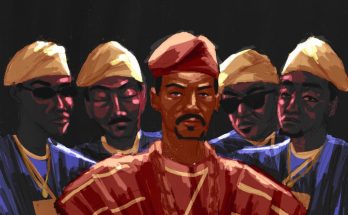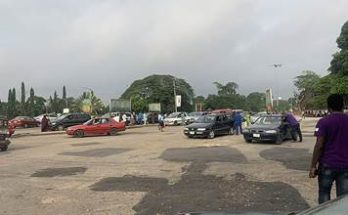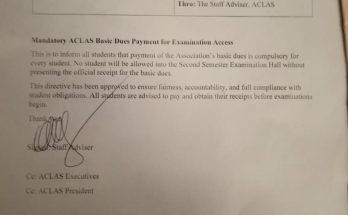Unionism is naturally a harsh word although harsh words don’t break bones.
The Students’ Union of the University of Ibadan was for a very long time the custodian of activism and social justice- a hallmark of the era in which UI students were popular for their militant spirit and blunt refusal (in form of intolerance) for oppression. Back then, the average Uite lived under the dictum ‘aluta continua Victoria ascerta’ which means ‘struggle continues, victory is certain.’
However, it is important to note that it is impossible to understand an ideology without first understanding the reason and rationales behind its existence. Also we not completely understand what the Students’ Union is about without first knowing its history.
66 years ago, the premier University was established as a fountain of knowledge to help in quenching the increasing thirst of Nigerians for education. In no time, it became a sanctuary of the best minds in all fields of knowledge; a melting point for critical minds, poets and literary giants who would play crucial roles in the nationalist movement of Nigeria. In the run up to independence, students and lecturers of this University led an anti-imperialist struggle against Anglo-Nigeria defense pact. It was therefore from the beginning an institution where academic excellence and ideological fervor were encouraged and fostered. In those golden days, intolerance of opposing views was seen as an inexcusable crime in an academic environment.
Today, it has become a sanctuary of attacks on opposing views, clamp of democratic rights, imposition of neo-liberal policies and ban of student unionism. At 66, the University is the only tertiary institution in which student unionism was banned for over five years.
The Student Union was crushed in a series of legal, administrative, political and violent attacks launched by the University management led by Prof. Ayodele Falase. The battle raged for about three years from 2000 to 2003. It started with the bold and courageous attempt by a generation of radical and socialist student activists to wrestle the Students’ Union from the domination of the university authorities who before then organized student union elections. To break from this modern day slavery, the students through the Student Representative Council and congress reviewed the student’s union constitution to give greater autonomy to students running their affairs, particularly in the choice of their leaders.
14 years ago, precisely on 29th November 2000, the Students’ Union election for 2000/2001 session was conducted in accordance with the provisions of this new constitution. As expected, this ran contrary to the wishes and desire of the university administration of Ayodele Falase, who had desired a return to the ignoble days when the authorities ran the affairs of the Student’s Union, including the conduct of elections. Subsequently, the management of the university filed an application at the Oyo State High Court seeking the court to declare the said union elections illegal.
In desperation, however, it could not wait for the outcome of the court case before it issued a flat suspension order on the entire leadership of the union and all those who had contested or served in the union electoral commission.
‘In all, a total of 43 students were suspended from their academic programs. Many of them have not been recalled since then.’
After its failed attempt at the state high court, the management finally secured a judgment from the Federal High court, Ibadan, restraining the elected officers of the union from acting as such, pending the outcome of the substantive suit seeking to declare the elections illegal. Immediately, students appealed this judgment at the court of appeal . They eventually won the case against the management on December 6, 2002.
Despite the court ruling that recognized students’ right of association and independent organization of their activists, the University Management through the senate went ahead to review the Students’ Union constitution and set up a Student Transition Committee. Mysteriously, in the instance of the students’ sustained resistance, cultists groups on campus, armed with guns and machetes, began to attack union leaders. At the end of the attack, several student activists were hospitalized. Consequently, the cultists took over the Student Union Building and prevented authentic union leaders from gaining access to their office. Meanwhile, radical student organizations like the Democratic Socialist Movement, Center for Democracy and Human Right, etc, were proscribed. The escapades of the radical forces on campus, eventually, lead to the death of the Union. Hence, students had to bear the anti-poor policies without any union that can defend them.
The Union was recently restored but the traditions have not been restored. This is evident by the successful but unprecedented increment in the transport fare from 15 naira to 20 naira without prior notice for such. The Students’ Union was silent and we, the student public, have accepted it as a norm. This would have been almost unfathomable in the glory days of the Union. The Students’ Union Week was another case-study of the maggoty state of the Union which could reasonably be described as the Student Union funeral. Here we are still hoping to get back to ‘the good days.’ Such hope was betrayed or defeated under the expiring administration led by Odesola Oluwafemi who did little or nothing to restore the sanctity of the Union. UITES better learn from history for ‘those who refused to learn from history are condemned to repeat it.’
Following the proscription of the University of Ibadan Students’ Union in 2004, the ensuing buffer period between the Students’ Union in 2010/11 was restored but without its essence- a union only by name. The union exists but has been rendered ineffective by some of the hidden clauses of the paper that established it. In fact, the Deputy Registrar is more powerful than the congress of about 25,000 students of the University. This means that no meaningful decisions affecting the University will ever be taken by students.
The solution to this dilemma, however, is to either review the constitution of the students’ union or move for a referendum. The latter seems the best option if it will not be made subject to laws of the powers that be. There are provisions for referendum in the Universal Declaration of Human Rights which holds sway in the global legal system.
This weakness of the students’ union was recognized and a meeting of several astute unionists was held. It was during this meeting that lasted for more than 8 hours between 9 pm and 5 am that 24 of the 26 aspirants signed an agreement to postpone the elections while the remaining two agreed to the document. Subsequently, the press-night organized by the Union of Campus Journalists was boycotted while the document signed by the aspirants was being circulated. The demands contained in the document strongly called for the review of the constitution as regards the electoral process (which establishes that the deputy registrar should be the chairman of the electoral committee).
A meeting that could be tagged as “an emergency” was called by the University management where at end a decision based on voting was made. 30 students voted in favor of the postponement against 12. The majority however, reiterated the possibility of a referendum if prompt and favorable reply is not given.
Moment of truth
“The history of hitherto existing societies is the history of class struggle”- Frederick Engels
I would like to take off from this premise that as long as a man lives he is destined to struggle otherwise certain classes of people would have totally become extinct by now. Struggle is a simple process without any complexities: if someone cheats you, you complain for a redress but if the redress is louder than the normal gentle man approach, the element of struggle will set in. I take the example of Russia in 1917 (that was during the First World War). Russia had no global relevance at that time until a riot broke out in some provinces including the city of Moscow. Lo and behold, the real form of democracy became active. Wealth became concentrated in the hands of the people. Resources were distributed to everyman according to his needs. The economy of Russia rose to its peak such that she attained the height the United States of America has been pursuing for more than 150 years within 3 years.
Lessons to be learnt here is that the strugglers knew what they wanted and went for it with acidic tenacity. What matters much on the side of the oppressed is the pillar of hope and continuous demand for what is right and it will surely happen. Even the Bible confirmed this position in Habakkuk 2 verse 3 that “that though it may tarry it will surely come to pass.” This explains the assurance of victory in the end of a struggle.
Struggle continues and victory is sure!!!
By Ojo Aderemi.



